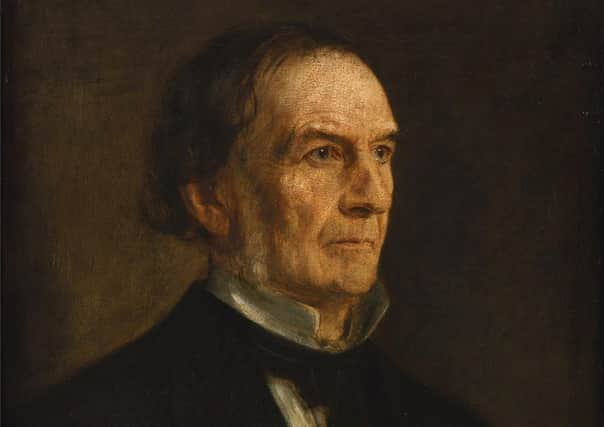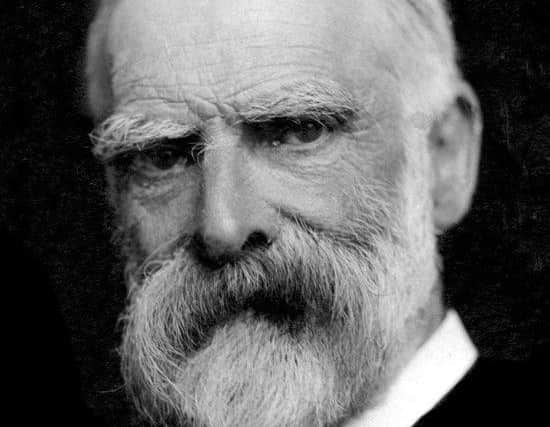William Gladstone ignored advice about Ulster resistance to Home Rule — advice that might have changed course of Irish history


On September 26 1871 prime minister William Gladstone received the Freedom of Aberdeen and took the opportunity to deliver a speech reviewing the Irish policy of his first administration.
As a result of his Church Act of 1869, the disestablishment of the Church of Ireland had come into force on January 1 1871 and he had passed a Land Act in February 1870, giving the force of law to customary tenant right (the ‘Ulster Custom’) where it existed and creating broadly similar rights elsewhere in Ireland where it did not.
Advertisement
Hide AdAdvertisement
Hide AdHe readily acknowledged the existence of the remaining ‘single grievance’ of university education (the Roman Catholic hierarchy’s demand for an explicitly Roman Catholic university) and this he sought to address with the Irish Universities Bill of February 1873 (but not to the Roman Catholic hierarchy’s satisfaction).


Based on his legislative programme to date, Gladstone contended: ‘There is nothing that Ireland has asked and which this country and this parliament have refused’. Rejecting demands for Home Rule, he declared: ‘I have looked in vain for the setting forth of any practical scheme of policy, which the Imperial Parliament is not equal to deal with, or which it refuses to deal with, and which is to be brought about by Home Rule.’
Most Ulster Liberals, especially Presbyterian Liberals, wholeheartedly shared Gladstone’s evaluation of his Irish policy and were delighted with the disestablishment and disendowment of the Church of Ireland and Gladstone’s first Land Act. (Gladstone’s second Land Act would follow in 1881.)
Outside Ulster many electors, evidenced by the success of Home Rulers in by-elections, did not. In the general election of 1868 Liberals had won 66 of the 105 Irish seats. In the general election of 1874 Liberals retained only 10 seats and Home Rule candidates won 60 of the 103 Irish seats.
Advertisement
Hide AdAdvertisement
Hide AdAt some point before the formation of his third administration in February 1886 Gladstone had abandoned his opposition to Home Rule for reasons which are still a matter of debate among historians, and had embraced the policy he had rejected in 1871.
James Bryce, the Belfast-born polymath and Liberal MP for Tower Hamlets (1880-85) and South Aberdeen (1885-1906), maintained close contact with his uncles and aunts in Belfast and visited them usually twice a year. At Easter 1885 he warned them and other Ulster Liberals of the imminence of Home Rule. ‘They were startled, at first discomposed, but presently told me that I was mistaken.’
Bryce ought to have been useful to Gladstone as an expert informant about Ulster but Gladstone paid little heed to his advice. Gladstone believed the existence of an Ulster question to be ‘preposterous’ and invariably preferred the advice of Sir Charles Russell, the Newry-born, Roman Catholic Liberal MP for Hackney and English attorney general, whose sympathies were with Home Rule. Russell’s prejudices chimed perfectly with those of Gladstone.
Bryce described himself as a ‘Home Ruler in despair, adopting it as the least of a choice of evils and being far from hopeful to its results’. Bryce produced a number of memoranda on Home Rule including ‘Irish Opinions on the Irish Problem’ and ‘The Case of the Ulster Protestants’. The central thrust of the former, based on a tour of Ireland after the 1885 general election and conversations with ‘several of the leading judges and higher officials, leading professional men, prominent merchants and influential Nationalists’, was that Ireland was on the verge of social disintegration and ‘things could not go on much longer the way they were’. The accuracy of this assessment is at least questionable.
Advertisement
Hide AdAdvertisement
Hide AdIn ‘The Case of the Ulster Protestants’, written in March 1886, Bryce tried to explain that Ulster Protestant opposition to Home Rule was not solely the preserve of a narrow bigoted Orange clique. He claimed to speak principally for Ulster Presbyterians who deserved credit for their fidelity to Liberalism in difficult circumstances, that they were ‘the best element in the population of the island’ (a proposition with which Russell was unlikely to concur) and that ‘the Scottish colony’ had ‘made north-east Ireland prosperous’.
He emphasised that Ulster Protestants had close social and commercial ties with Liverpool and Scotland, and could not understand why Englishmen wished to make changes to the governance of Ireland.
Although Bryce repeatedly warned Gladstone of the determination of Liberal Presbyterians to resist Dublin rule, as under-secretary of state for foreign affairs he was a lone voice in the administration, arguing the Ulster Protestant case and his views were disregarded. In Bryce’s opinion Gladstone should have left the north-east counties out of his first Home Rule bill. He also believed that Parnell could have been persuaded to acquiesce in this.
Bryce subsequently contended that much of the trouble English politicians had in dealing with the Irish question was due to their sheer ignorance (‘plus ça change, plus c’est la même chose’) and the lack of any means to rectify it.
Advertisement
Hide AdAdvertisement
Hide AdIn 1888 Bryce, a serious academic historian, expressed concern at the use and abuse of history in contemporary politics. His observations could be regarded as thinly veiled criticism of Gladstone’s poor understanding of 18th-century Irish history and its dubious relevance to the 19th century:
‘The worth of history for the purposes of practical politics … is greatly over-rated. History furnishes no precepts or recipes which can be directly applied to political problems … situations and conjunctions of phenomena arise which seem similar to those which have gone before them, but the circumstances are always so far different that it is never possible to confidently predict similar results, or to feel sure that it is necessary either to avoid a remedy which failed, or to resort to that which succeeded on a previous occasion’.
If Bryce had been more successful in persuading Gladstone of the reality of the Ulster Question in 1886/86 or even in 1892/93, the history of 20th-century Ireland might make for more agreeable reading. Gladstone was extremely ill-informed about the realities of Ulster life.
Bryce’s failure to educate the Liberal political elite in these matters might be regarded as a matter for serious regret.
——— ———
A message from the Editor:
Advertisement
Hide AdAdvertisement
Hide AdThank you for reading this story on our website. While I have your attention, I also have an important request to make of you.
With the coronavirus lockdown having a major impact on many of our advertisers — and consequently the revenue we receive — we are more reliant than ever on you taking out a digital subscription.
Subscribe to newsletter.co.uk and enjoy unlimited access to the best Northern Ireland and UK news and information online and on our app. With a digital subscription, you can read more than 5 articles, see fewer ads, enjoy faster load times, and get access to exclusive newsletters and content. Visit https://www.newsletter.co.uk/subscriptions now to sign up.
Our journalism costs money and we rely on advertising, print and digital revenues to help to support them. By supporting us, we are able to support you in providing trusted, fact-checked content for this website.
Ben Lowry
Acting Editor